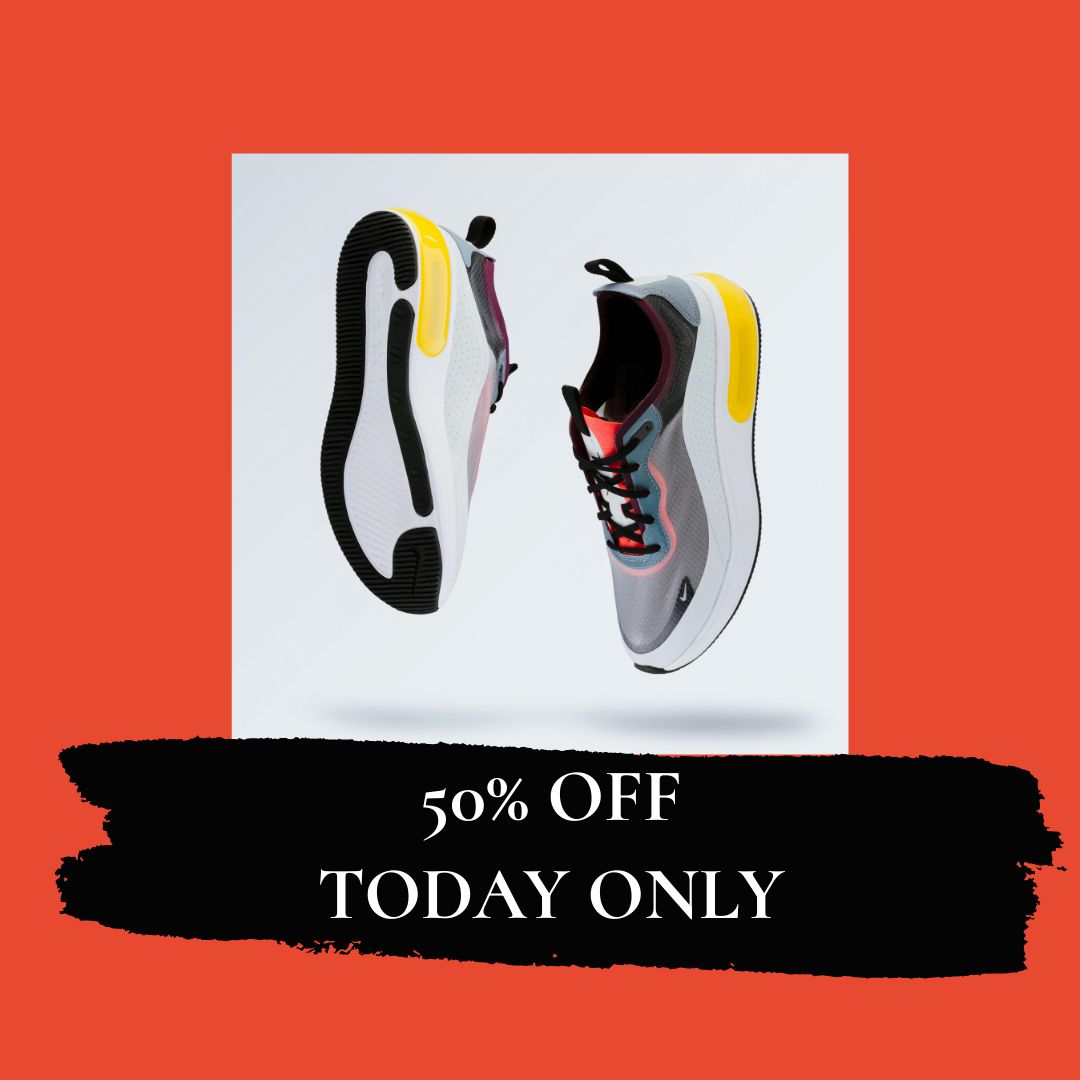Imagine you’re walking down a bustling street lined with shops. Suddenly, a colourful sign catches your eye: “50% Off Today Only!”

Instinctively, you feel a surge of excitement and curiosity. You can’t resist stepping inside to see what’s on offer. This is the magic of a well-timed sale. This powerful tool can transform casual passers-by into eager customers.
In e-commerce, sales events are essential for creating a sense of urgency and attracting shoppers seeking the best deals. For Australian business owners in the food and retail sectors, understanding how to leverage sales events can lead to significant growth in sales and revenue. Whether you run a brick-and-mortar store with an online presence or an e-commerce business, standing out and driving sales is crucial for success.
One powerful strategy for Australian business owners are using online sales events. These events can boost immediate cashflow, improve conversion rates, manage inventory, enhance SEO performance, and build lasting customer relationships.
This blog explores four ways regular sales events can transform your e-commerce business. Whether you run a small boutique shop with an online presence or manage a growing Direct-to-Consumer (DTC) brand, understanding and implementing these strategies can lead to significant sales and customer loyalty growth. From creating a sense of urgency that drives conversions to use sales as a tool for effective inventory management, from boosting your SEO performance to growing your email list and brand awareness, we’ll delve into actionable insights that can help increase your online store’s performance. Get ready to unlock the potential of sales events and take your e-commerce business to new heights.
Drive Traffic and Conversion
Think of your online store as a garden. Regular sales events are like sunshine, encouraging growth and attracting a flurry of activity. When you announce a sale, you create a sense of urgency that appeals to bargain hunters and curious browsers alike. This urgency can significantly drive traffic to your site and increase conversion rates.
Create Urgency
It’s the middle of a quiet afternoon, and you receive an email notification about a flash sale at your favourite online store. “Today Only: 40% Off All Organic Snacks!” it reads. The time-sensitive offer sparks a sense of urgency even if you weren’t planning to buy anything. You find yourself clicking through to see what’s available, so to be sure you are not missing out on a great buy. Regular sales events harness this psychological trigger effectively. The fear of missing out (FOMO) compels customers to act quickly, leading to more sales in a shorter period.
Research by Martaleni et al.1 concluded that both Flash Sale and Free Shipping variables positively and significantly influence purchasing decisions in the Shopee market.
Flash Sales
Flash sales are incredibly effective for food retailers. For example, Sarah, our gourmet chocolate seller, might offer a “24-Hour 40% Off All Truffles” sale. This type of sale creates a sense of urgency, and encouraging impulse buying. It drives quick conversions as customers rush to take advantage of the limited-time offer.
Consumer Behaviour
Now, let’s talk about consumer behaviour. Australians love a good bargain. Research released by Shopify found that 79% of Aussies are tightening their belts to save money. A third of respondents are pessimistic about the economy and how it impacts their personal situation, and the number of people prioritising the best value is up 10% on 2023 figures. “More than half of consumers in the country are looking for the best value when they shop – whether lower prices, higher quality products, or other elements – driven by cost of living pressure, pushing competition even higher,” the report states. This means that by regularly offering discounts, you’re meeting a significant demand. Your customers are not only looking for products but also hunting for deals.
Impulse Purchases
Finally, let’s discuss impulse purchases. Have you ever walked into a store for a single item and walked out with a full shopping bag? Sales and discounts can trigger this behaviour online, too. A 2022 study by Juwita et al. found that flash sales on the Shopee marketplace led to a 65.8% increase in impulse buying.
Imagine a customer visiting your e-commerce site for a specific product. They notice a sale on related items or site-wide discounts and add a few more items to their cart. This increases your average order value and enhances the overall shopping experience, making customers more likely to return in the future.
Inventory Management
Running a successful e-commerce store is like running a well-organised kitchen. Just as a chef needs to keep ingredients fresh and ensure nothing goes to waste, a retailer needs to manage their inventory efficiently. Regular sales events can be vital in your inventory management strategy, helping you clear out old stock and keep your offerings fresh and appealing.
Clearing Out Stock
Imagine your online store as a pantry. Over time, certain items might sell slower than you hoped, leading to stock buildup. These items are taking up valuable space and tying up your resources. Regular sales events are like a pantry clean-out, helping you move these slow-selling items quickly.
For instance, if you sell seasonal products, offering a discount on last season’s stock before the new season begins can help you clear out space and make room for new inventory. A 2021 study by Intuit found that retailers can increase their inventory turnover ratio by 50-100% through effective promotional strategies like regular sales. This keeps your inventory fresh and improves cash flow, allowing you to reinvest in popular and new products.
Seasonal Stock Clearance
Seasonal clearance sales are perfect for managing inventory. A food retailer might offer discounts on winter comfort foods as spring approaches or a clothing retailer could have an “End of Season” sale to make room for new inventory. These sales help clear out older stock and keep your inventory dynamic and relevant.
Business Sustainability
Effective inventory management isn’t just about maintaining a tidy stockroom; it’s crucial for your business’s sustainability. Overstocking can lead to increased storage costs and the risk of items becoming obsolete or expiring. On the other hand, under stocking can result in missed sales opportunities and dissatisfied customers.
Consider the examples of Australian company Kogan, an online retailer, faced significant financial challenges post the pandemic due to holding too much stock. The excess inventory led to increased storage costs and cash flow problems, impacting the company’s profitability and operational efficiency.
Another Australian company that faced similar issues is Harris Scarfe, a well-known department store. Harris Scarfe had to undergo restructuring due to financial difficulties, with overstocking being one of the contributing factors. These cases highlight the importance of effective inventory management in maintaining business sustainability and avoiding financial pitfalls.
SEO and Engagement
Search engines like Google constantly seek signals that a website is active, engaging, and relevant to users. Regular sales events can provide these signals, boosting your SEO performance and improving your site’s visibility. Let’s explore how.
Active Site Management
Imagine your website as a vibrant marketplace. The more activity and engagement it shows, the more attractive it appears to visitors and search engines. Running sales events regularly signals to search engines that your site is actively managed and frequently updated, with the new landing pages, banners and sales announcements, the content updates are continues. This can lead to better indexing and improved search rankings. This is because search engines favour sites that provide fresh, relevant content and consistently engage users. By running sales events, you attract more visitors and enhance your site’s overall SEO profile.

User-Generated Content
One of the hidden gems of running sales events is the boost in user-generated content (UGC) it can generate. Customers who take advantage of your sales are likelier to leave reviews, ask questions, share their purchases on social media, and engage with your brand. This UGC is invaluable for SEO.
The very presence of UGC has a positive impact on conversion. There’s an 8.5% increase in conversion among visitors who are served up some form of UGC on product pages. The conversion lift is significantly larger – 100.6% – among visitors who interact with the UGC in some manner. Reviews and social media shares act as endorsements, building trust and credibility with new customers while providing fresh content that search engines love. Encourage your customers to share their purchases and experiences, and you’ll see a ripple effect that benefits your SEO.
Customer Reviews
Let’s remember the power of customer reviews. Increased sales during promotion events, has been proven to have “significant impact on the volume of product reviews published in the days following the pricing initiative” 2, which can enhance product page SEO and improve click-through rates from search results long after the event has ended. These reviews provide social proof, showing potential customers that your products are popular and well-regarded.
During my time at Provenir, as head of Sale and Marketing, I implemented an automated follow-up email designed to enhance customer engagement and gather valuable feedback. This email was timed to send to customers three days after they received their order, checking in on their satisfaction with the purchase and requesting a review. This thoughtful follow-up not only demonstrated our commitment to customer service (and satisfaction) but also provided an opportunity for customers to share their experiences and insights.
The impact of this initiative was particularly noticeable after each online promotion we ran. The timely follow-up email significantly encouraged customers to leave reviews, as they felt like they got a good deal, resulting in a marked increase in the number of positive 5-star customer reviews post-promotion.
These reviews were invaluable, offering genuine feedback that helped us improve our products and services while also enhancing our online presence and credibility. The increase in reviews also contributed to better SEO performance and built trust with potential new customers, showcasing the effectiveness of our promotional sales and customer engagement efforts.
Holiday-themed Events
Holiday-themed events can create significant engagement and boost your SEO. For instance, a “Christmas in July” sale could feature discounts on festive products or gift items, drawing in shoppers already in a holiday mindset and eager to find great deals.
Email List Growth and Brand Awareness
Sales events are more than just opportunities to boost immediate sales; they are also powerful tools for long-term growth and engagement. By building your email list and enhancing brand awareness, you can create a loyal customer base that keeps coming back.
Email Sign-Ups
Imagine your email list as a community of loyal supporters. Each new sign-up represents a potential repeat customer who has expressed interest in your products and wants to hear more from you. Sales events and discount offers are a fantastic way to grow this list. When you offer exclusive discounts or early access to sales for email subscribers, you incentivise visitors to join your list.
For example, a very popular promotion these days is offering an 10% discount on the next purchase for anyone who signs up for your newsletter during the sale. This boosts your sales during the event and provides a valuable marketing tool for future campaigns. Email marketing remains one of the most effective ways to drive traffic and conversions, and growing your list should always be a priority.
Email Subscriber Exclusives
Offering exclusive discounts to email subscribers can be highly effective. For example, a retailer might give subscribers early access to a sale or an additional discount, ensuring they feel valued and more likely to make a purchase.
Brand Awareness
Sales events are like throwing a spotlight on your brand. They create buzz and excitement, drawing attention from both new and existing customers. Successful sales events can significantly boost brand awareness, leading to more branded searches in the future and positively impacting your overall SEO performance.
Think of a successful sale as a pebble thrown into a pond, creating ripples far beyond the initial splash. Each sale not only attracts immediate buyers but also generates word-of-mouth promotion. Satisfied customers are likely to share their positive experiences with friends and family, post about them on social media, and leave reviews—all of which enhance your brand’s visibility and credibility.
Data Collection and Analysis
Sales events provide a treasure trove of data about customer behaviour, popular products, and effective marketing strategies. By analysing this data, you can gain valuable insights into what works and what doesn’t, allowing you to refine your future sales strategies and overall SEO efforts.
A study titled “Association Rules for Product Sales Data Analysis Using The Apriori Algorithm”3 by Jarseno Pamungkas and Yopi Handrianto, published in 2020, highlights the importance of data analysis in improving sales strategies. The research was conducted at PT. Surya Indah City, focusing on sales transaction data to identify dominant products and their associations. The study found that by using the Apriori algorithm, strong association rules between products were identified. For example, if a customer buys a shirt, there is a 75% confidence that they will also buy pants. By leveraging these insights, the company could optimize inventory management, ensuring popular items are always in stock, and create targeted marketing campaigns, such as bundled discounts, to encourage purchases of associated products. This data-driven approach not only improved sales but also enhanced customer satisfaction and operational efficiency.
Bundle Deals
Creating bundle deals is an excellent way to encourage customers to try multiple products. Jack could create a “Sauce Lover’s Bundle” at a discounted price, enticing customers to buy more and explore different flavours, thereby increasing overall sales and customer satisfaction.
Social Media Flash Sales
Retailers can also use platforms like Instagram or Facebook to announce limited-time offers. Social media flash sales drive engagement and sales by reaching customers where they spend a lot of their time online.
“Buy One, Get One” Promotions
These promotions can be particularly effective for food items with a shorter shelf life, encouraging customers to purchase more while also helping manage inventory. Offering “Buy One, Get One Free” on select items can quickly move products and delight customers with a great deal.
Conclusion
This post explores the multifaceted benefits of running regular sales events for your e-commerce store. Sales events can significantly enhance your online business’s performance by driving traffic and increasing conversions, managing inventory effectively, boosting SEO and engagement, and growing your email list and brand awareness. We’ve also discussed specific sales events, including flash sales, seasonal clearances, holiday-themed events, bundle deals, email subscriber exclusives, social media flash sales, and “buy one, get one” promotions.
Now that you understand the powerful impact of sales events, it’s time to implement these strategies. Start planning your next sales event today and use the insights and techniques discussed here to optimise your online sales efforts.
Your business’s bottom line will look better—and your customers will thank you.
References:
- The Effect of Flash Sale on Purchasing Decisions: A Theoretical Approach
(https://journal.unj.ac.id/unj/index.php/isc-beam/article/view/42698) - The Effects of Price Promotions on Online User Reviews (https://sigarra.up.pt/fep/en/pub_geral.show_file?pi_doc_id=161907)
- Association Rules for Product Sales Data Analysis Using The Apriori Algorithm
(https://jurnal.polgan.ac.id/index.php/sinkron/article/view/10599)

Leave a Reply